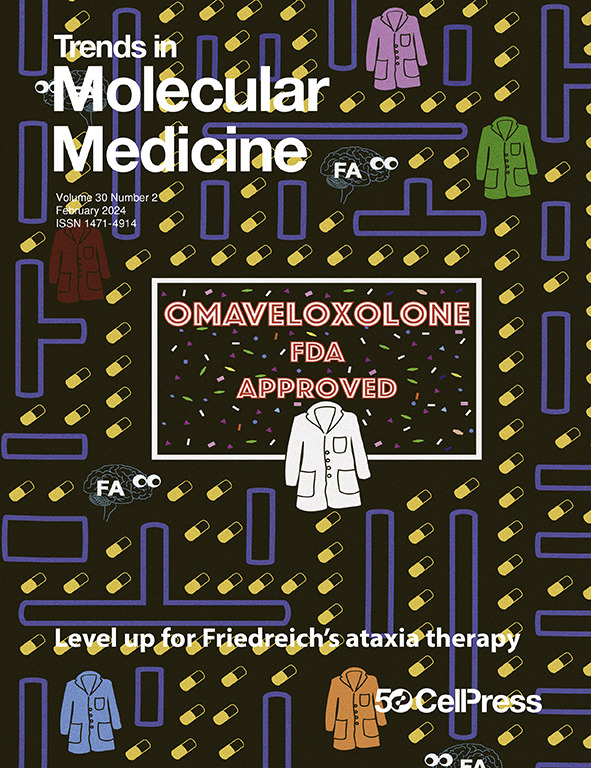IL-6: a pivotal molecule for tumor-brain dysfunction interaction.
IF 12.8
1区 医学
Q1 BIOCHEMISTRY & MOLECULAR BIOLOGY
Trends in molecular medicine
Pub Date : 2025-07-01
Epub Date: 2025-06-02
DOI:10.1016/j.molmed.2025.05.004
引用次数: 0
Abstract
Neuropsychiatric complications of cancer cachexia include apathy. Zhu et al. identified a brain circuit sensitive to tumor-driven interleukin-6 (IL-6) signaling that directly reduces motivation by suppressing dopaminergic activity. Targeted circuit-based and pharmacologic interventions, including systemic anti-IL-6 antibodies, reversed motivational deficits and point to new therapeutic avenues for apathy.
IL-6:肿瘤-脑功能障碍相互作用的关键分子。
癌症恶病质的神经精神并发症包括冷漠。Zhu等人发现了一个对肿瘤驱动的白细胞介素-6 (IL-6)信号敏感的脑回路,该回路通过抑制多巴胺能活性直接降低动机。靶向电路和药物干预,包括全身抗il -6抗体,逆转了动机缺陷,并指出了冷漠的新治疗途径。
本文章由计算机程序翻译,如有差异,请以英文原文为准。
求助全文
约1分钟内获得全文
求助全文
来源期刊

Trends in molecular medicine
医学-生化与分子生物学
CiteScore
24.60
自引率
0.00%
发文量
142
审稿时长
6-12 weeks
期刊介绍:
Trends in Molecular Medicine (TMM) aims to offer concise and contextualized perspectives on the latest research advancing biomedical science toward better diagnosis, treatment, and prevention of human diseases. It focuses on research at the intersection of basic biology and clinical research, covering new concepts in human biology and pathology with clear implications for diagnostics and therapy. TMM reviews bridge the gap between bench and bedside, discussing research from preclinical studies to patient-enrolled trials. The major themes include disease mechanisms, tools and technologies, diagnostics, and therapeutics, with a preference for articles relevant to multiple themes. TMM serves as a platform for discussion, pushing traditional boundaries and fostering collaboration between scientists and clinicians. The journal seeks to publish provocative and authoritative articles that are also accessible to a broad audience, inspiring new directions in molecular medicine to enhance human health.
 求助内容:
求助内容: 应助结果提醒方式:
应助结果提醒方式:


